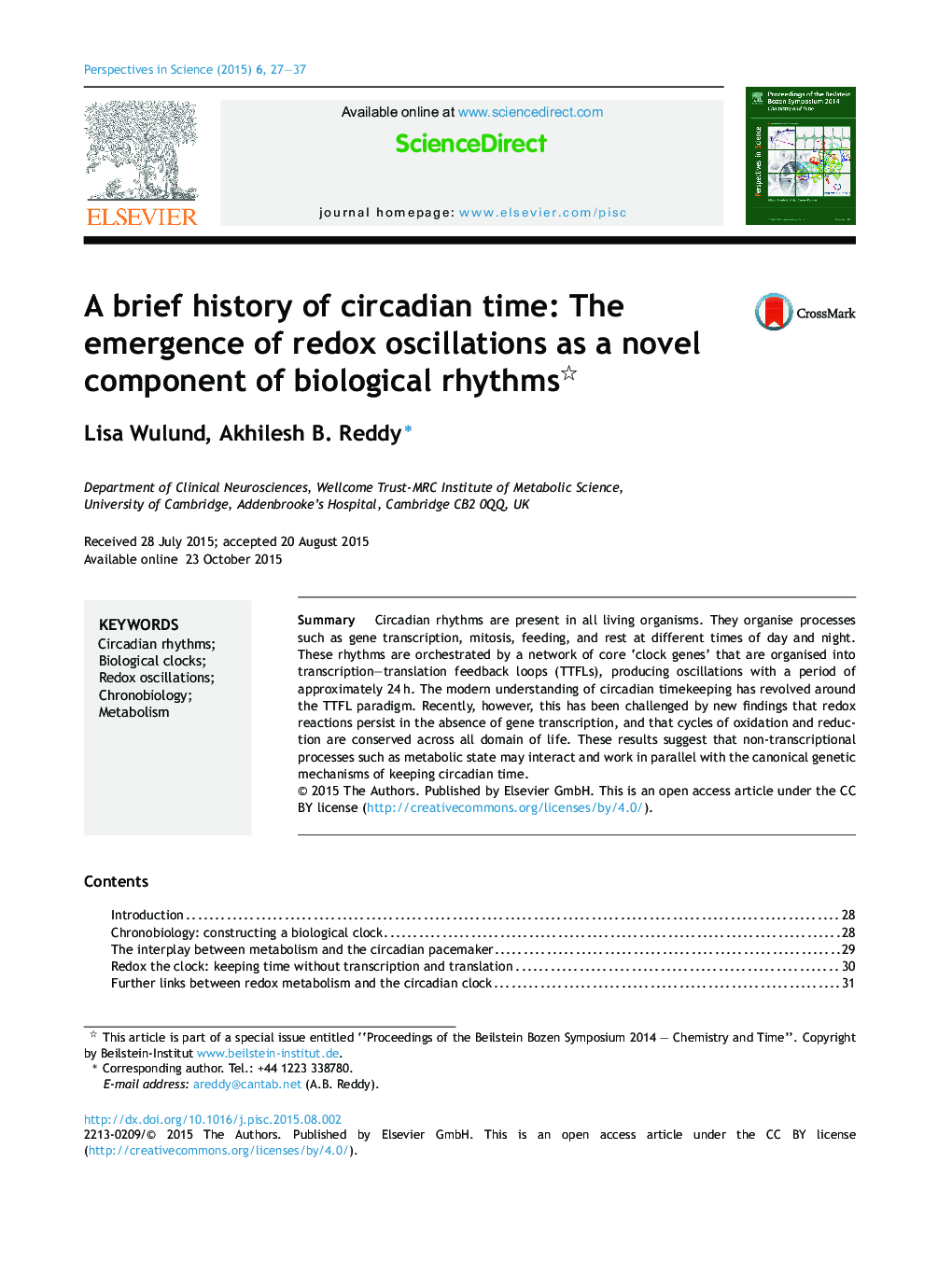| Article ID | Journal | Published Year | Pages | File Type |
|---|---|---|---|---|
| 2061634 | Perspectives in Science | 2015 | 11 Pages |
Abstract
Circadian rhythms are present in all living organisms. They organise processes such as gene transcription, mitosis, feeding, and rest at different times of day and night. These rhythms are orchestrated by a network of core 'clock genes' that are organised into transcription-translation feedback loops (TTFLs), producing oscillations with a period of approximately 24Â h. The modern understanding of circadian timekeeping has revolved around the TTFL paradigm. Recently, however, this has been challenged by new findings that redox reactions persist in the absence of gene transcription, and that cycles of oxidation and reduction are conserved across all domain of life. These results suggest that non-transcriptional processes such as metabolic state may interact and work in parallel with the canonical genetic mechanisms of keeping circadian time.
Related Topics
Physical Sciences and Engineering
Earth and Planetary Sciences
Earth and Planetary Sciences (General)
Authors
Lisa Wulund, Akhilesh B. Reddy,
